 W
WThomas Abernethy was a Scottish seafarer, gunner in the Royal Navy, and polar explorer. Because he was neither an officer nor a gentleman, he was little mentioned in the books written by the leaders of the expeditions he went on, but was praised in what was written. In 1857, he was awarded the Arctic Medal for his service as an able seaman on the 1824–25 voyage of HMS Hecla, the first of his five expeditions for which participants were eligible for the award. He was in parties that, for their time, reached the furthest north, the furthest south (twice), and the nearest to the South Magnetic Pole. In 1831, along with James Clark Ross's team of six, Abernethy was in the first party ever to reach the North Magnetic Pole.
 W
WAdmiral Pelham Aldrich, CVO was a Royal Navy officer and explorer, who became Admiral Superintendent of Portsmouth Docks.
 W
WCaptain George Miller Bligh (1780–1834) was an officer of the Royal Navy, who saw service during the French Revolutionary and Napoleonic Wars, eventually rising to the rank of Captain. He was present aboard HMS Victory at the Battle of Trafalgar, and was badly wounded during the action. He was taken below and was present in the cockpit during the death of Vice-Admiral Horatio Nelson.
 W
WDuncan Gordon Boyes VC was an English recipient of the Victoria Cross, the highest and most prestigious award for gallantry in the face of the enemy that can be awarded to British and Commonwealth forces. The award was bestowed upon him for his actions during the Shimonoseki Expedition, Japan in 1864. He was later discharged from naval service as a result of ill-discipline and moved to New Zealand to work on his family's sheep station. Suffering from depression and alcoholism, he committed suicide at the age of 22 in Dunedin.
 W
WHenry Ernest Boyes (1844–1919) was an American entrepreneur and Navy captain. Boyes founded Boyes Hot Springs in California after discovering hot springs on his property.
 W
WWilliam Robert Broughton was a British naval officer in the late 18th century. As a lieutenant in the Royal Navy, he commanded HMS Chatham as part of the Vancouver Expedition, a voyage of exploration through the Pacific Ocean led by Captain George Vancouver in the early 1790s.
 W
WAdmiral Sir Henry William Bruce was a Royal Navy officer who went on to be Commander-in-Chief, Portsmouth.
 W
WGeorge Busk FRS was a British naval surgeon, zoologist and palaeontologist.
 W
WVice-Admiral Alfred Francis Blakeney Carpenter, VC was a Royal Navy officer who was selected by his fellow officers and men to receive the Victoria Cross, the highest and most prestigious award for gallantry in the face of the enemy that can be awarded to British and Commonwealth forces.
 W
WFrancis Rawdon Moira Crozier was an Irish officer of the Royal Navy and polar explorer who participated in six expeditions to the Arctic and Antarctic. In May 1845, he was second-in-command to Sir John Franklin and captain of HMS Terror during the Franklin expedition to discover the Northwest Passage, which ended with the loss of all 129 crewmen.
 W
WAlfred Taylor Dale was a Royal Navy admiral.
 W
WJohn Davidson was an English surgeon who served as Inspector-General of the Royal Navy and was Honorary Physician to Queen Victoria.
 W
WJames Pinson Labulo Davies was a 19th-century African merchant-sailor, naval officer, influential businessman, farmer, pioneer industrialist, statesman, and philanthropist who married Sara Forbes Bonetta in colonial Lagos.
 W
WConstantine Augustus Dillon was an officer in the Royal Navy, the 16th Lancers, and the 7th Dragoons, a prominent settler of New Zealand, and the fourth son of Henry Dillon, 13th Viscount Dillon.
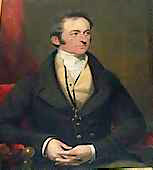 W
WRear Admiral Hon. George Heneage Lawrence Dundas CB was a senior officer in the Royal Navy. As a junior officer he came to prominence due to his brave conduct during a fire on the first-rate HMS Queen Charlotte. As a result of this he was appointed to the command of the sixth-rate HMS Calpe in which he took part in the Battle of Algeciras Bay in July 1801 during the French Revolutionary Wars. After serving for four years as Whig Member of Parliament for Richmond, he was given command of the fifth-rate HMS Euryalus and took part in the unsuccessful Walcheren Campaign in July 1809 during the Napoleonic Wars. He transferred to the third-rate HMS Edinburgh and landed troops at Viareggio in Italy in November 1812 later in that War. He went on to be Member of Parliament for Orkney and Shetland and became First Naval Lord in the First Melbourne ministry in August 1834 but died in office just two months later in October 1834.
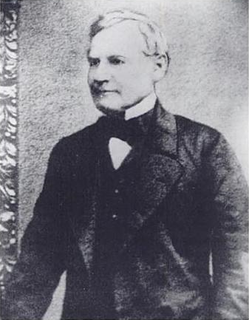 W
WAdmiral Sir Charles Elliot was a British Royal Navy officer, diplomat, and colonial administrator. He became the first Administrator of Hong Kong in 1841 while serving as both Plenipotentiary and Chief Superintendent of British Trade in China. He was a key founder in the establishment of Hong Kong as a British colony.
 W
WRobert James Elliott, was an English naval officer, Captain in the Royal Navy, and known as a topographical draughtsman from 1822 to 1824.
 W
WAdmiral Sir Charles Howe Fremantle GCB RN was a renowned British Royal Navy officer. The city of Fremantle, Western Australia, is named after him.
 W
WCommodore James Graham Goodenough was an officer in the Royal Navy who went to become Commander-in-Chief, Australia Station.
 W
WVice-Admiral Sir Thomas Masterman Hardy, 1st Baronet, GCB was a Royal Navy officer. He took part in the Battle of Cape St Vincent in February 1797, the Battle of the Nile in August 1798 and the Battle of Copenhagen in April 1801 during the French Revolutionary Wars. He served as flag captain to Admiral Lord Nelson, and commanded HMS Victory at the Battle of Trafalgar in October 1805 during the Napoleonic Wars. Nelson was shot as he paced the decks with Hardy, and as he lay dying, Nelson's famous remark of "Kiss me, Hardy" was directed at him. Hardy went on to become First Naval Lord in November 1830 and in that capacity refused to become a Member of Parliament and encouraged the introduction of steam warships.
 W
WAdmiral Sir Augustus Leopold Kuper was a Royal Navy officer known for his commands in the far east.
 W
WSir John Liddell, KCB, FRS was a Scottish medical doctor who served as Director-General of the Medical Department of the Royal Navy, and senior medical officer of the Royal Hospital at Greenwich.
 W
WEdward Hawke Locker was an English watercolourist and administrator of the Royal Naval Hospital, Greenwich.
 W
WGeorge Francis Lyon was an English naval officer and explorer of Africa and the Arctic. While not having a particularly distinguished career, he is remembered for the entertaining journals he kept and for the pencil drawings he completed in the Arctic; this information was useful to later expeditions.
 W
WStaff Surgeon William Job Maillard VC was an English recipient of the Victoria Cross, the highest and most prestigious award for gallantry in the face of the enemy that can be awarded to British and Commonwealth forces.
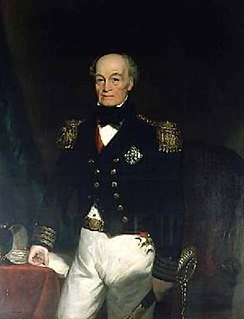 W
WAdmiral of the Fleet Sir Thomas Byam Martin, was a Royal Navy officer. As captain of fifth-rate HMS Fisgard he took part in a duel with the French ship Immortalité and captured her at the Battle of Tory Island during the French Revolutionary Wars. Then while in command of the third-rate HMS Implacable in the Baltic Sea and attached to the Swedish Navy he took part in the capture the Russian ship Sewolod (Vsevolod) during the Napoleonic Wars.
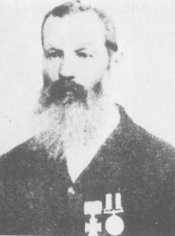 W
WSamuel Mitchell VC was a Royal Navy sailor and a recipient of the Victoria Cross, the highest award for gallantry in the face of the enemy that can be awarded to British and Commonwealth forces.
 W
WConstantine Richard Moorsom was a Vice-Admiral in the Royal Navy. He commanded HMS Fury a Hecla-class bomb vessel which saw wartime service in the Bombardment of Algiers, an attack on Barbary pirates at Algiers in HMS Fury in August, 1816. Moorsom was the son of Admiral Sir Robert Moorsom, a veteran of Trafalgar. Moorsom was on the roster of HMS Revenge, his father's ship, when it was at the Battle of Trafalgar. However records show that Constantine was actually at school at the time of the battle. Moorsom rose to be chairman of the London & North Western Railway.
 W
WAdmiral of the Fleet Sir Gerard Henry Uctred Noel, was a Royal Navy officer. As a junior officer he commanded a naval brigade which took part in the capture of Kumasi in February 1874 during the Second Anglo-Ashanti War.
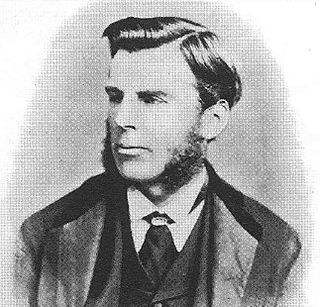 W
WGeorge Wightwick Rendel was an English engineer, and naval architect. He was closely associated with the Tyneside industrialist and armaments manufacturer, William George Armstrong.
 W
WDr. David D. Rowlands, M.D., F.R.S., F.A.S. (1778–1846) was a Welsh naval surgeon, who became the Inspector of H.M. Hospital and Fleets for the Royal Navy. He had the distinction of being the Surgeon for the Royal Navy at Halifax when he treated the wounded of HMS Shannon, including Captain Philip Broke, after the renown Capture of USS Chesapeake during the War of 1812. He was a Fellow of the Royal Society and a Fellow of the Antiquarian Society. He also supported the Governesses' Benevolent Institution in London (1844).
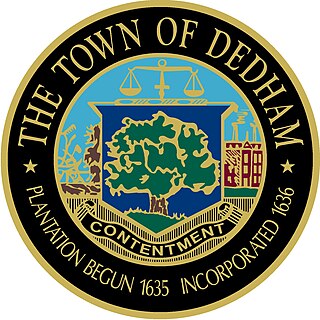 W
WWilliam Henry Harrison Seeley, VC was an American who fought with the British Royal Navy during the Shimonoseki Campaign in Japan and was a recipient of the Victoria Cross (VC), the highest award for gallantry in the face of the enemy that can be awarded to British and Commonwealth forces. He was the first American-born recipient of the VC.
 W
WFrancis Pringle Taylor was Naval officer, naval commandant of the Queensland colonial navy. Taylor was born in Edinburgh, the son of Rev. Robert Taylor, of Blairgowrie, Scotland, and joined the navy as a cadet in 1866. After serving in several ships he was invalided and came to Australia in 1879, where from 1880 to 1884 he was lieutenant in command of the colonial corvette HMS Wolverine. In 1884 he raised a volunteer naval artillery corps at Sydney. In 1885 he was promoted to commander of the Wolverine.
 W
WCharles Edward Telfair was an Irish botanist.
 W
WJoseph Tucker was joint Surveyor of the Navy alongside Robert Seppings from 1813 until his retirement in 1831.
 W
WJohn White was an Irish surgeon and botanical collector.
 W
WWilliam IV was King of the United Kingdom of Great Britain and Ireland and King of Hanover from 26 June 1830 until his death in 1837. The third son of George III, William succeeded his elder brother George IV, becoming the last king and penultimate monarch of Britain's House of Hanover.